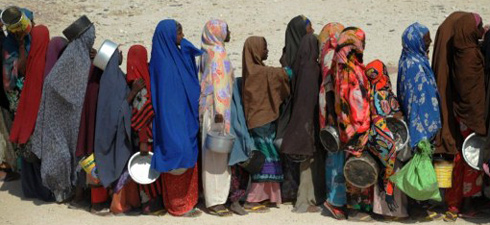It’s not poverty wracking Somalia, but misery. Poverty may be dignified. Misery is not. Faced with a combination of violence, disorder and scarcity, it’s action, not talk, that is needed – and urgently.
Somalia and its neighbours expect four things from Europe: first, organisation – i.e., engineering for survival. Secondly, doctors and medicine. Thirdly, they want a police force, which must be brought in. And finally, they want food. Not for a week, but for a year.
If Europe wants to help the Somalis today, Europe must, of course, come to grips with the emergency, the disease, the hunger and the extreme violence. But if we’re talking about tomorrow, Europe will have to set up training centres in Somalia and a police force to protect these facilities. There also needs to be a sense of the time limits: in this case, training shouldn't take 20 years, but one or two. When dealing with states such as Somalia, the EU must offer a transparency that is verifiable at any time.
A great part of the funds from the EU, which manages much of the development aid, comes from governments. This is not the case with the US. The private per capita contribution of the Netherlands and the Nordic countries of Denmark, Norway, Sweden and Finland is five times that of Spain or Portugal.
The World Bank and IMF have helped to destabilise Somali society since the 1970s, when, paradoxically, they were trying to build effective structures. Food aid tipped the scales as Europeans, Americans and Japanese tried to balance nomadic pastoralism against sedentary agriculture. In the end, though, all they succeeded in doing was weakening the capacity of the state.
Today the evil has spread to Kenya, Eritrea, Ethiopia and Djibouti. In refugee camps around Mogadishu more than 370,000 victims are waiting for help, while another 160,000 have fled the country. Many of them, mostly women and children, have died of starvation or dehydration on the way.
Since July 27, however, the European air bridge has got off the ground and is working well, flying in substantial aid in medicines and medical supplies from Americans and Europeans, as happened in Haiti a year and a half ago. But what count above all are the points mentioned above. The first relief teams specialised in organisational engineering have arrived to ensure the refugees survive – provided that they have police protection.
Do you like our work?
Help multilingual European journalism to thrive, without ads or paywalls. Your one-off or regular support will keep our newsroom independent. Thank you!
















